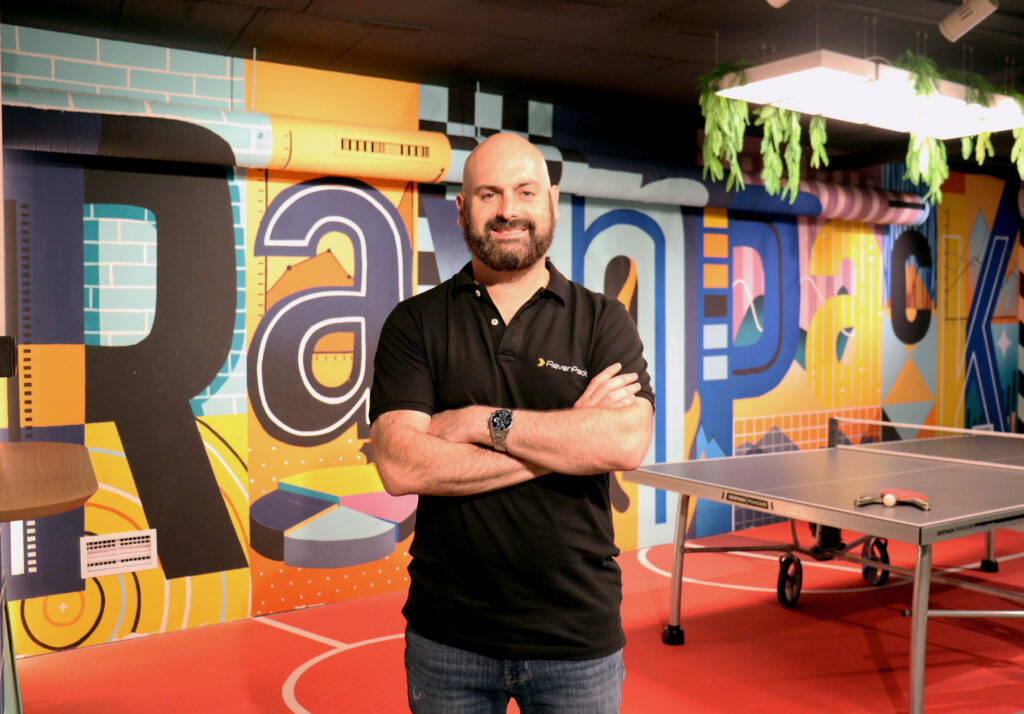Capital Efficient Strategy for Generative AI Startups: RavenPack CEO Armando Gonzales (Part 4)
Sramana Mitra: What were average deal sizes in what you were selling?
Armando Gonzales: It’s a range. It can be anywhere between the $50,000 to several hundreds of thousand dollars.
Sramana Mitra: Recurring revenue?
Armando Gonzales: Correct.
>>>Featured Videos
Best of Bootstrapping: Serial Entrepreneur Bootstraps First

If you haven’t already, please study our Bootstrapping Course and Investor Introductions page.
Joe Speiser, Founder and CEO of LittleThings bootstrapped his first digital media/ad network business to $50 million in revenue and then sold it to private equity. Later he started a second business, an e-commerce company, that he bootstrapped for a year and then raised venture capital. His third business, LittleThings, is a spin-off within the second business that took him back to his digital media roots. Since our conversation in 2015, LittleThings was acquired by RockYou Media, an entertainment and media company aimed at millennials, in 2018.
Sramana Mitra: Let’s start at the very beginning of your journey. Where are you from? Where were you born, raised, and in what kind of background?
Joe Speiser: I’m from New York and I went to school in the city. I studied at the Columbia University. I’ve been doing all sorts of businesses from a very young age. I always had a passion for trying to start something from scratch and make a living. My dad is an entrepreneur. I used to work in his warehouse for most of my summers. It definitely taught me a lot watching my dad run a business. I don’t know if it’s something that’s taught or something that you’re just genetically predisposed to. I enjoy it so much.
Best of Bootstrapping: Bootstrapped First, Raised Money Later to Exit

If you haven’t already, please study our Bootstrapping Course and Investor Introductions page.
Ensighten Founder Josh Manion is a fellow MIT alum, and a fellow believer in the tried and true methodology, Bootstrap First, Raise Money Later. Josh raised his Series A with $5 million in revenue. When we spoke in 2015, the company was growing at 150% year-over-year. CHEQ acquired Ensighten in 2022. Wonderful story!
Sramana Mitra: Let’s go back to the very beginning of your story. Where are you from?
Where were you born, raised, and in what kind of background?
Josh Manion: I grew up in a little town in Wisconsin called Jamesville, which had about 50,000 people. My dad delivered little snack cakes to grocery stores and stocked the shelves with them. My mom ran a store. It was a Midwest upbringing. The unique element for me was that I was actually homeschooled all the way through high school. That afforded me some unique latitude to pursue some of the things that I’m passionate about. One of which is chess, which I took to some extreme. I actually played as a professional chess player for a couple of years before going to college. I have one sister three years older than me.
Video FAQs
Can 1M/1M Help Me Raise Money?
How Does 1M/1M Democratize Entrepreneurship Education?
How Does 1M/1M Democratize Management Consulting?
When Is The Right Time To Join 1M/1M?
Can 1M/1M Help Me With Business Development?
Can 1M/1M Help Me With Market Sizing?
Can 1M/1M Help Me Validate My Product?
Will I Have Private 1-on-1 Sessions In 1M/1M?
How Does 1M/1M Help Entrepreneurs Connect With Silicon Valley?
Mentoring or Consulting?
Why Does 1M/1M Charge $1000 a Year?
Why Does 1M/1M Partner With Local Organizations?
Why Don\’t Mentoring Networks Work?
Why Is It Important To Study With 1M/1M Now?
Dan Stewart Story
Vikrant Mathur Story
Capital Efficient Strategy for Generative AI Startups: RavenPack CEO Armando Gonzales (Part 3)
Sramana Mitra: Let’s go to your story. How did you build the company?
Armando Gonzales: In the early days, we were mostly doing research and development and trying to figure out how some of our ideas could apply to different problems.
Sramana Mitra: When you got this client who wanted to use your trading technology, did you start zeroing in on that particular use case as the company positioning?
>>>Capital Efficient Strategy for Generative AI Startups: RavenPack CEO Armando Gonzales (Part 2)
Sramana Mitra: The use case was investing and trading in stocks?
Armando Gonzales: Yes, it didn’t start that way. It started as a very generic AI platform that could do all sorts of things including trading. We thought it could be used for healthcare diagnostics. We were looking at it from a cybersecurity perspective as well. We also tried building a prototype of open-source intelligence system that can be used by governments or global organizations.
>>>Best of Bootstrapping: Founders Bootstrapped Using Services from Atlanta

If you haven’t already, please study our Bootstrapping Course and Investor Introductions page.
Adding to our roster of Bootstrapping Using Services case studies, here’s my conversation with PMG.net Founders Joe LeCompte and Robert Castles from 2015.
Sramana Mitra: Let’s start at the very beginning of your personal journey. Tell us a bit about where you come from, where you were born and raised, and in what kind of background.
Robert Castles: I was born in Columbia, South Carolina. I spent the first half of my life there through to college. I have always been interested in technology as early as I can remember. When I was 11 years old, I begged my father for a Radio Shack Color Computer so that I could take it home and learn how to program. This is while all my friends were looking for baseball mitts, which I also like. I spent an inordinate amount of time looking for that computer, which I got.
Capital Efficient Strategy for Generative AI Startups: RavenPack CEO Armando Gonzales (Part 1)

Armando has built an AI company over 20 years, deeply focusing on Finance and Trading.
He discusses his journey, and also reflects on how generative AI startups can be built in a capital-efficient manner. Great conversation!
Sramana Mitra: Let’s start at the very beginning of your story. Where are you from? Where were you born and raised? What kind of background?
>>>Cloud Stocks: Atlassian Embeds AI into Solutions

According to a recent report, the global enterprise collaboration market is expected to grow 15% to $54.88 billion this year and grow at 14% CAGR to reach $92.4 billion by 2027. Atlassian (Nasdaq: TEAM) recently announced its third quarter results that surpassed market expectations.
>>>